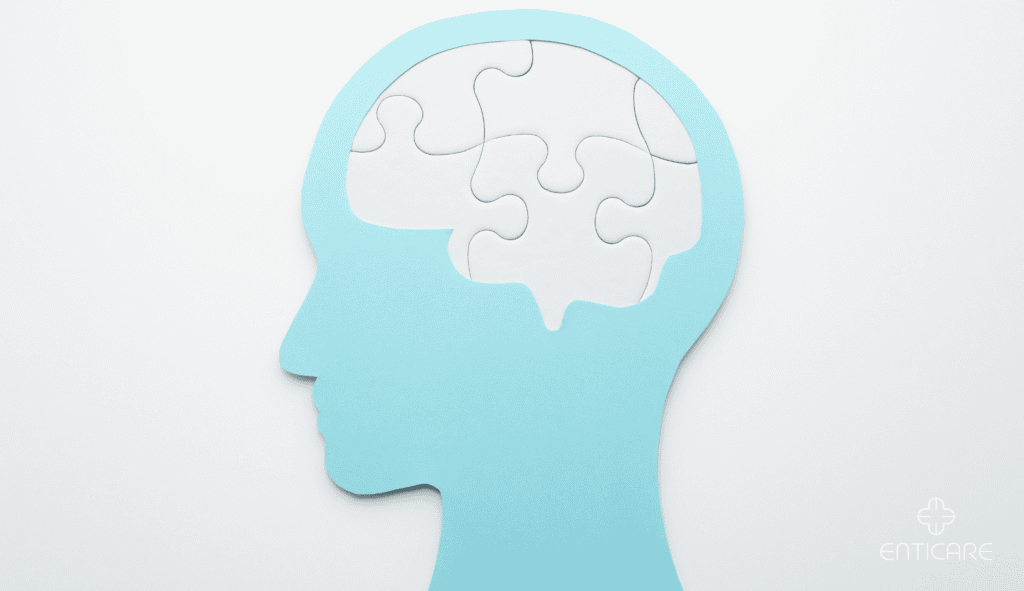Anxiety and hearing loss often go hand in hand, especially in adults. Hearing is an essential part of daily communication, and when it begins to fade, it can take a toll on both mental and emotional well-being. Many adults with hearing loss report increased levels of anxiety, and this often leads to social withdrawal, depression, and reduced quality of life. But the good news? Understanding this connection can lead to better treatment and an improved life.

Understanding Hearing Loss and Its Impact on Mental Health
The Basics of Hearing Loss
Hearing loss is a prevalent condition that affects millions of individuals globally. It can stem from various factors, including aging, genetic predisposition, exposure to loud noises, and certain medical conditions. Hearing loss can range from mild to severe and may affect one or both ears. There are three primary types of hearing loss: conductive, sensorineural, and mixed. Conductive hearing loss occurs when there is an issue with the middle ear, such as a blockage or damage. Sensorineural hearing loss arises from problems in the inner ear or auditory nerve, often due to aging or noise exposure. Mixed hearing loss is a combination of both conductive and sensorineural components. Understanding these types can help identify the appropriate treatment and management strategies.
Mental Health Implications
The impact of hearing loss extends beyond the physical inability to hear; it significantly affects mental health. Research indicates that individuals with hearing loss are more susceptible to anxiety, depression, and social isolation. The emotional toll and emotional strain of struggling to hear and communicate can lead to frustration, embarrassment, and diminished self-esteem. Additionally, the stigma surrounding hearing loss can deter people from seeking the help and support they need. Addressing hearing loss with a healthcare professional is crucial in alleviating anxiety, mental exhaustion, and enhancing overall well-being. By acknowledging and treating hearing loss, individuals can improve their mental health and quality of life.
What is the Connection Between Hearing Loss and Anxiety?
Social Isolation
Hearing impairment can make social interactions challenging and uncomfortable. Adults experiencing hearing loss may feel embarrassed or frustrated when they can’t follow conversations, especially in noisy environments. This leads to social isolation and avoidance of situations that once brought joy, increasing feelings of loneliness, social anxiety, and anxiety. Social isolation can compound anxiety, creating a vicious cycle.
Cognitive Overload
When hearing deteriorates, the brain has to work harder to process sounds and conversations. This added mental effort, often called cognitive overload, can lead to mental fatigue, exhaustion, and heightened stress levels. Cognitive overload can leave adults feeling drained and anxious, as their brains are working overtime just to interpret what others are saying. Additionally, cognitive overload can contribute to generalized anxiety disorder, exacerbating its symptoms and impacting overall mental health.
Fear of Missing Out (FOMO)
Adults with hearing loss often worry about missing important information, whether in social, professional, or family settings. This fear can exacerbate anxiety as individuals constantly stress about whether they are being left out of critical conversations, decisions, or opportunities, leading to constant stress.
The Psychological Impact of Hearing Loss
Increased Stress Levels
Dealing with the frustration of hearing difficulties every day can lead to chronic stress. The inability to understand speech or sound clearly forces adults to be hyper-alert in social situations, which can trigger stress responses and emotional strain. In many cases, stress becomes constant, contributing to a deteriorating mental health state over time.
The persistent challenges of hearing loss are similar to those faced by individuals living with a chronic illness, as both conditions create enduring psychological burdens.
Depression and Anxiety Go Hand in Hand
Anxiety disorders aren’t the only mental health challenges that accompany hearing loss. Many adults also experience depression as their hearing declines. The combination of social isolation, frustration, and loss of independence can lead to feelings of hopelessness, sadness, and a lack of motivation. Studies have shown that untreated hearing loss can increase the likelihood of developing clinical depression.
Emotional Fatigue
Managing hearing loss can cause emotional fatigue and mental exhaustion. The daily struggle of lip-reading, requesting people to repeat themselves, or deciphering muffled sounds can be mentally and emotionally draining. Over time, this exhaustion feeds into increased anxiety, making even simple daily activities seem overwhelming.

Addressing Anxiety and Hearing Loss: Treatment Options
Hearing Aids
Hearing aids remain the most effective tool for improving hearing clarity and reducing the anxiety that comes with hearing loss. Today’s hearing aids are discreet, technologically advanced, and customizable to the user’s specific hearing needs. By restoring some level of hearing, hearing aids help reduce anxiety in social situations. They are particularly beneficial for individuals with severe hearing loss, as they can significantly mitigate the feelings of isolation and frustration associated with untreated hearing loss.
Cognitive Behavioral Therapy (CBT)
Cognitive Behavioral Therapy is a widely recommended treatment for managing anxiety. For adults with hearing loss, CBT can be particularly effective, helping them reframe negative thoughts about their hearing limitations. This therapy can help individuals manage their fears of social rejection, embarrassment, or being left out of conversations.
Additionally, CBT can help manage the anxiety related to tinnitus symptoms, which can disrupt concentration, worsen sleep, and negatively impact emotional well-being.
Mindfulness and Relaxation Techniques
Mindfulness meditation and relaxation exercises can provide significant relief from anxiety. These practices help individuals become more aware of their thoughts and feelings, allowing them to manage stress and anxiety more effectively. Simple breathing exercises and guided meditation can be particularly helpful for those who experience anxiety related to their hearing loss.
How to Prevent Anxiety Related to Hearing Loss
Regular Hearing Check-Ups
Routine hearing check-ups are essential in detecting and managing hearing loss early. Adults should schedule regular hearing tests to monitor their hearing health and avoid the progression of anxiety caused by undiagnosed or untreated hearing problems.
Support Groups
Connecting with others who are also dealing with hearing loss can help alleviate anxiety. Support groups provide a safe space to share experiences, coping strategies, and emotional support. This sense of community can significantly reduce feelings of isolation and fear.
Education for Family and Friends
Family and friends play a critical role in helping adults manage their hearing loss-related anxiety. Encouraging loved ones to learn about hearing loss and how it impacts communication can foster a more supportive environment. Better communication leads to stronger relationships and reduces the anxiety that comes with feeling misunderstood.

Supporting a Loved One with Hearing Loss-Related Anxiety
Supporting a loved one with hearing loss-related anxiety requires empathy, understanding, and effective communication. It’s essential to encourage open and honest communication, validate their experiences, and be a trusted ally as they navigate their journey. This can involve helping them to seek professional help, such as counseling or therapy, and supporting them in their use of hearing aids or other assistive listening devices.
Take Control of Your Hearing and Mental Health Today
Hearing loss does more than impact your ability to hear—it affects your mental health, relationships, and quality of life. But the good news is that help is available. If you or a loved one are struggling with hearing loss and anxiety, don’t wait. Take the first step towards improved hearing and peace of mind by scheduling an appointment with our hearing specialists today.
Ready to take control of your hearing and mental health?

